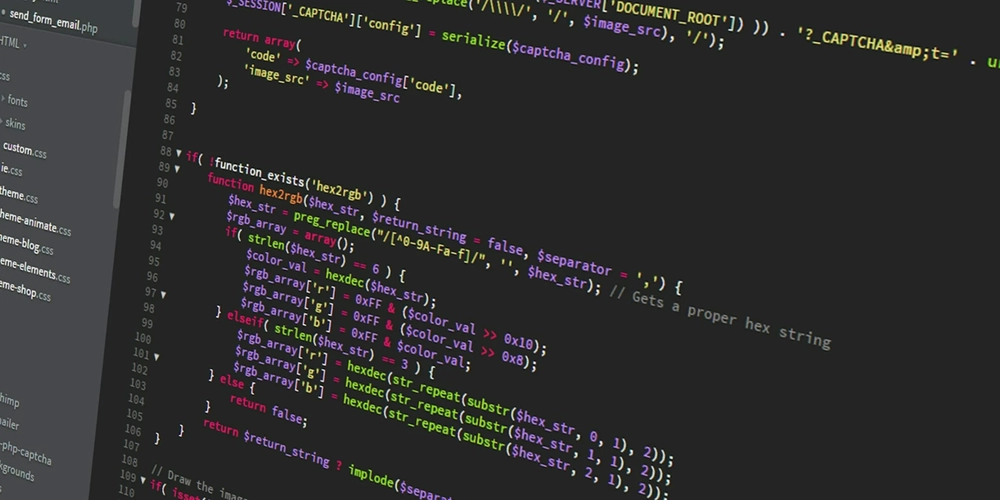Is PHP, at its age of 30 in 2025, past its prime?
Introduction: The latest TIOBE index shows PHP's popularity has fallen to an all-time low, ranking 17th. The annual Stack Overflow Developer Survey also reveals a decline in developer favor, shrinking from around 30% to 18%. "PHP is the best language in the world" has become a darkly humorous meme among programmers. In this climate of decline, is PHP truly without prospects? Is it even worth learning anymore? 1. From Glory to Decline? PHP, born in 1995, began as a simple scripting tool for processing HTTP forms. Later versions added MySQL database support, transforming it into a standalone web development language. Fueled by the rapid growth of the internet, PHP's ease of use and strong community propelled it to become a dominant language for web application development. Combined with Linux, MySQL, and Apache, the LAMP stack became a cornerstone of dynamic websites and applications. According to W3C statistics, nearly 78% of the world's websites are built using PHP. PHP, with its low cost, ease of use, flexibility, scalability, and thriving web ecosystem, once held a prominent position in the development world, rivaling Java. However, with the rise of mobile internet, cloud computing, and artificial intelligence, internet software systems have become increasingly complex. Large-scale websites demand high concurrency and availability. Java offers advantages over PHP in type safety, performance, multi-threaded connection pooling, stricter coding standards, and more mature solutions and ecosystems for service governance. Many tech teams now prefer Java over PHP for building web systems. Furthermore, the emergence of new programming languages like Node.js and Golang, with advantages like static compilation, superior performance, and asynchronous programming, has intensified competition. These languages are flourishing and attracting a growing number of developers. While the PHP community continues to improve the language, PHP's position in certain areas has been eroded. As technology evolves, some significant websites and applications are migrating to other languages and frameworks, leading to questions about PHP's future. Many developers believe PHP is in decline, a sentiment reflected in the recent TIOBE index. Developers are losing confidence in PHP and switching to other languages. 2. Reasons for PHP's Decline External factors include the changing times. The internet boom has subsided, and the age of artificial intelligence is upon us, with Python leading the pack. Other languages are experiencing similar drops in attention. Internal factors include: A limited ecosystem: PHP hasn't expanded beyond web development. Insufficient updates: PHP's evolution in type systems, compilers, and concurrent programming has lagged behind languages like Java, Golang, and JavaScript (V8). Legacy baggage: PHP still carries baggage from 20 years ago, like superglobals (e.g., $_GET, $_POST) and inconsistent function naming. Despite these challenges, PHP remains a valuable language, powering numerous websites and web applications. The PHP community continues its efforts to adapt the language to new trends and market demands. While PHP may be experiencing a decline, its robust ecosystem suggests it will continue to play a significant role in the development landscape. 3. The PHP Ecosystem A healthy ecosystem is crucial for programming, encompassing tools, libraries, frameworks, community, documentation, tutorials, third-party services, and support. A vibrant ecosystem directly impacts developer productivity, project success, and technological advancement. PHP excels within the web development domain. Java boasts mature ecosystems in desktop software, Android, big data, finance, and e-commerce. Python thrives in data science, AI, machine learning, scientific computing, and education, becoming particularly hot with the advent of AI. Golang is making inroads in cloud-native and server-side software, replacing C/C++. Node.js dominates front-end development, single-page applications (SPAs), and full-stack development. In contrast, PHP's ecosystem is relatively narrow, highlighting its limitations. The official PHP team seems less interested in supporting ecosystems outside of web development, focusing updates primarily on PHP-FPM and Apache. Fortunately, the community has Swoole, an asynchronous coroutine solution similar to Golang's, addressing PHP's shortcomings in asynchronous concurrent programming and network communication. Swoole provides developers with more choices and flexibility to handle complex applications and high concurrency. Additionally, strong engineering standards are essential for ensuring project quality and development efficiency. 4. Engineering Standards Matter Experience has shown that robust engineering practices are more important than development speed. Good standards ensure long-term maintainability, scalability, and stabil

Introduction: The latest TIOBE index shows PHP's popularity has fallen to an all-time low, ranking 17th. The annual Stack Overflow Developer Survey also reveals a decline in developer favor, shrinking from around 30% to 18%. "PHP is the best language in the world" has become a darkly humorous meme among programmers. In this climate of decline, is PHP truly without prospects? Is it even worth learning anymore?
1. From Glory to Decline?
PHP, born in 1995, began as a simple scripting tool for processing HTTP forms. Later versions added MySQL database support, transforming it into a standalone web development language. Fueled by the rapid growth of the internet, PHP's ease of use and strong community propelled it to become a dominant language for web application development. Combined with Linux, MySQL, and Apache, the LAMP stack became a cornerstone of dynamic websites and applications. According to W3C statistics, nearly 78% of the world's websites are built using PHP.
PHP, with its low cost, ease of use, flexibility, scalability, and thriving web ecosystem, once held a prominent position in the development world, rivaling Java.
However, with the rise of mobile internet, cloud computing, and artificial intelligence, internet software systems have become increasingly complex. Large-scale websites demand high concurrency and availability. Java offers advantages over PHP in type safety, performance, multi-threaded connection pooling, stricter coding standards, and more mature solutions and ecosystems for service governance. Many tech teams now prefer Java over PHP for building web systems.
Furthermore, the emergence of new programming languages like Node.js and Golang, with advantages like static compilation, superior performance, and asynchronous programming, has intensified competition. These languages are flourishing and attracting a growing number of developers.
While the PHP community continues to improve the language, PHP's position in certain areas has been eroded. As technology evolves, some significant websites and applications are migrating to other languages and frameworks, leading to questions about PHP's future. Many developers believe PHP is in decline, a sentiment reflected in the recent TIOBE index. Developers are losing confidence in PHP and switching to other languages.
2. Reasons for PHP's Decline
External factors include the changing times. The internet boom has subsided, and the age of artificial intelligence is upon us, with Python leading the pack. Other languages are experiencing similar drops in attention. Internal factors include:
- A limited ecosystem: PHP hasn't expanded beyond web development.
- Insufficient updates: PHP's evolution in type systems, compilers, and concurrent programming has lagged behind languages like Java, Golang, and JavaScript (V8).
-
Legacy baggage: PHP still carries baggage from 20 years ago, like superglobals (e.g.,
$_GET,$_POST) and inconsistent function naming.
Despite these challenges, PHP remains a valuable language, powering numerous websites and web applications. The PHP community continues its efforts to adapt the language to new trends and market demands. While PHP may be experiencing a decline, its robust ecosystem suggests it will continue to play a significant role in the development landscape.
3. The PHP Ecosystem
A healthy ecosystem is crucial for programming, encompassing tools, libraries, frameworks, community, documentation, tutorials, third-party services, and support. A vibrant ecosystem directly impacts developer productivity, project success, and technological advancement.
PHP excels within the web development domain. Java boasts mature ecosystems in desktop software, Android, big data, finance, and e-commerce. Python thrives in data science, AI, machine learning, scientific computing, and education, becoming particularly hot with the advent of AI. Golang is making inroads in cloud-native and server-side software, replacing C/C++. Node.js dominates front-end development, single-page applications (SPAs), and full-stack development.
In contrast, PHP's ecosystem is relatively narrow, highlighting its limitations. The official PHP team seems less interested in supporting ecosystems outside of web development, focusing updates primarily on PHP-FPM and Apache.
Fortunately, the community has Swoole, an asynchronous coroutine solution similar to Golang's, addressing PHP's shortcomings in asynchronous concurrent programming and network communication. Swoole provides developers with more choices and flexibility to handle complex applications and high concurrency. Additionally, strong engineering standards are essential for ensuring project quality and development efficiency.
4. Engineering Standards Matter
Experience has shown that robust engineering practices are more important than development speed. Good standards ensure long-term maintainability, scalability, and stability. While rapid development offers short-term gains, projects lacking standards can face numerous problems:
- Decreased code quality: Unstandardized code becomes messy, difficult to understand, and maintain, consuming more time and effort during development, debugging, and modification.
- Difficult team collaboration: Lack of standards leads to inconsistent coding styles and habits, hindering team communication and collaboration.
- Poor code readability: Standardized code is easier to read and understand, aiding in problem identification, code comprehension, and code reviews.
- Increased maintenance costs: Unstandardized code increases maintenance costs, as developers spend more time deciphering and modifying code, accumulating technical debt.
- Difficult project evolution: As projects grow and requirements change, poorly standardized code becomes harder to maintain and extend, often requiring refactoring or rewriting.
Ignoring engineering standards can have severe consequences, potentially stalling project development. PHP offers several tools to improve engineering standards:
- PHPUnit: A unit testing framework.
- ServBay: A one-stop development environment management tool. Developers can quickly install, upgrade, and switch between different versions of services. With modular combinations, developers can stack and replace services like Lego bricks, simulating various development environments. ServBay also helps align team environments, ensuring consistency and enabling real-time sharing and collaboration.
- Laravel: A clean and elegant PHP web development framework that helps developers escape messy code, build web applications, and write concise, expressive code.
- PSR: A series of community-driven PHP coding standards covering autoloading, coding style, naming conventions, and interface design.
- PhpStorm: A PHP IDE designed to enhance productivity, offering intelligent code completion, quick navigation, and on-the-fly error checking.
However, from a language perspective, PHP has inherent shortcomings compared to Java. Early versions lacked namespaces and full support for object-oriented features. While PHP 7 introduced improvements, issues persist:
(1) Lack of Strict Typing
Strict typing promotes standardized code. Weak typing often leads to difficulties during refactoring. PHP now supports type hinting in most syntax:
1. Function Arguments and Return Values:
function fun(int $a, float $b, FunClass $c, string $d, callable $e): bool {
// code ...
}
2. Object Properties:
class FunClass {
public int $age;
public string $name;
public stdClass $attrs;
}
Using strict mode is recommended:
declare(strict_types=1);
Unfortunately, PHP arrays remain untyped:
$a1 = new FunClass;
$array = [$a1];
$a2 = $array[0]; // Type information is lost
This lack of array typing is why Facebook's HHVM ultimately diverged from PHP, becoming the strictly typed language Hack.
(2) Lack of Binary Build Support
The software development lifecycle includes development, testing, building, and deployment. Static languages like Java and Golang compile to binaries, eliminating the need to deploy source code. PHP typically deploys source code directly, leading to:
- WebShell injection: Malicious code injection through uploads or file writing.
- Direct online code modifications: Discrepancies between server code and Git repositories.
- Deployment challenges: Fragmented updates causing logical errors.
- Source code leaks.
While Docker mitigates some of these issues, PHP's core developers still cling to hot reloading, a feature primarily beneficial in development and testing.
(3) Inconsistent Function Naming
PHP's built-in functions reside in the root namespace, and some have inconsistent naming:
-
htmlspecialcharsshould behtml_encode_special_chars. - String functions like
strstr,substr, andstr_replacelack consistency, unlike the well-organizedarray_*functions.
(4) Inconsistent Parameter Order
Built-in function parameters are inconsistently ordered. Consider array_search and array_filter:
array_filter($array, $callback);
array_search($value, $array);
The array isn't always the first parameter, requiring developers to consult documentation.
5. Is PHP Still Worth Learning?
Despite its flaws, PHP remains worth learning. Compared to mainstream languages like Java, Python, C++, and newer languages like Node.js, Rust, and Golang, PHP offers unique advantages and a convenient toolset that saves developers time.
(1) Simplicity
PHP has a relatively simple syntax, unlike complex languages like C++ with its move semantics and language lawyer intricacies. PHP avoids integer overflow concerns, unlike C++ or Golang with their various integer types (int8, int16, etc.). It has no pointers, eliminating null pointer exceptions common in Java and Golang. It also avoids Python's sometimes confusing syntax and JavaScript's quirks like the equivalence of 0, [], '\t', and '0'. PHP is straightforward and beginner-friendly, with a low learning curve.
(2) Extensive Function Library
PHP's vast built-in library covers a wide range of functionalities, including string manipulation, arrays, dates, math, regular expressions, JSON, XML, file operations, email, network communication, database operations, cryptography, image processing, terminal and process management, and internationalization. This readily available functionality reduces the need for custom code or reliance on third-party libraries, streamlining development.
6. Future Trends for PHP
Since the establishment of the PHP Foundation, the language has received stable funding and development. Many of the existing issues are likely to be addressed in future versions.
PHP frameworks like Laravel and Symfony are maturing, closing the gap with Java's Spring framework. Tools like ServBay enhance developer productivity and lower the barrier to entry. The Swoole coroutine extension, with its planned v6.0 release, introduces multi-threading and coroutines, improving PHP's concurrency capabilities.
Conclusion
In my view, PHP is steadily progressing and has the potential to regain popularity. For PHP developers, it's essential to embrace AI tools like ChatGPT and Github Copilot, understand large language models like Transformers, utilize Docker and container orchestration, master front-end technologies like Vue, React, and ElementUI for full-stack development, and broaden skills by learning other languages like C++, Golang, or Java.
What's Your Reaction?




















































































